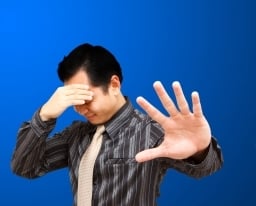
A US Unemployment Service was left red-faced after almost 300 employees were caught receiving undeserved benefits.

More than 300 Washington, D.C, government employees had to be disciplined – including suspensions, terminations and prosecutions – after being caught committing unemployment fraud.
The kicker? Many of them worked for the unemployment department.
Almost $2 million was paid out in undeserved benefits to 318 employees between 2009 and 2012.
"Many of these individuals did lose their employment," D.C. Department of Employment Services director Lisa Mallory said. "There are several cases in front of the U.S. attorney, and those will take their course."
The District had already managed to recoup about $1 million in the overpayments, Mallory said, with other employees already on payment plans.
In August, a judge sentenced a former employee of the District's public school system to 45 days in jail for stealing $27,200 in benefits while employed.
The month before, though, a former Department of Consumer and Regulatory Affairs employee received a suspended jail sentence for accepting about $18,000 in fraudulent benefits.
“By holding people accountable, that sends a clear message we’re not tolerating this behavior,” Mallory said.
The alleged fraud was not a complicated or uncommon conspiracy – workers receive cheques legitimately while unemployed but fail to inform authorities when they go back to work.
“Some are people who come in and out of government and never stopped [receiving unemployment checks]. Some may have worked in parts of an agency where for the summer months you don’t work,” Mallory said. “There are no clear patterns that we can discern. It’s just a matter of certifying you aren’t receiving income when you are receiving income.”
Mallory said a new software system allowed the department to uncover the widespread fraud.
“Our focus is really on trying to deter,” she said. “We want to make sure that individuals who owe this money are actually held accountable for these overpayments.”